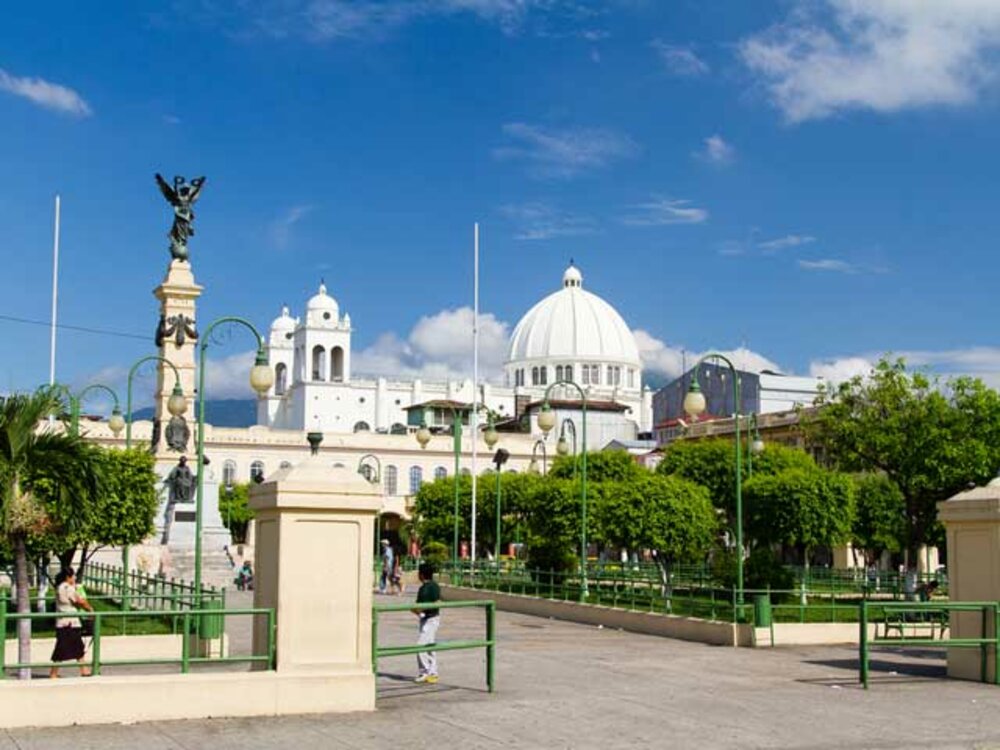With the largest approval in CABEI's history, El Salvador reaffirms the Bank's role as Central America's most important multilateral development institution

CABEI has an active portfolio of US$1,661 million in this country, representing investments in sectors such as road infrastructure, public safety, education, sports, among others.
San Salvador, April 30, 2021.- With the largest approval in the history of the Central American Bank for Economic Integration (CABEI), for US$600.0 million to the Republic of El Salvador, this nation reaffirms its role as the most relevant multilateral development institution in Central America and its commitment to support its efforts to achieve sustainable development.
This commitment is reflected in the financing of human development projects, the improvement of public infrastructure, and economic reactivation, which total up to US$1.661 billion.
"It is very important for CABEI that the Salvadoran people, especially in these times of social and economic challenges due to the effects of the COVID-19 pandemic, have our backing through timely financial and technical support to stimulate the development and reactivation of the economy, as well as the implementation of strategic projects for the nation," said CABEI Executive President, Dr. Dante Mossi, during a conversation with the Salvadoran press on Friday.
During the presentation, Dr. Mossi highlighted the recent approval of the US$600.0 million "Program to Support Economic Recovery Measures Implemented to Benefit Companies and Employment Affected by COVID-19," which aims to support the Republic of El Salvador's efforts to reactivate the economy, impacting close to 21,000 MIPYMEs, of which 14,755 are headed by women, as well as the retention of more than 100,000 jobs.
This program has three financial support subprograms aimed at MIPYMEs, the first to provide subsidies to their employees in the amount of US$140 million, the second to provide loans of up to US$360 million, and the third is the productive financing program for entrepreneurs and small traders in the informal sector for US$100 million.
With this initiative, CABEI adds to the efforts already made in 2020 with the financing of the US$250 million program "Support for Public Policy Actions for the Country's Economic Reactivation, Attention to Vulnerable Groups and Employment".
Among the projects currently underway are the US$71 million Penitentiary System Strengthening Program; the expansion and construction of roads and bridges for US$144.7 million; and the US$16.9 million Las Pavas Water Treatment Plant Rehabilitation Project.
The CABEI Board of Directors approved and the Salvadoran authorities are currently analyzing the Financing Program for Phase II and Phase III of the Territorial Control Plan; the My New School Program; and the Infrastructure Construction and National Sports Venues Rescue Program (PRODEPORTE), for a total of US$515.2 million.
The CABEI is also in the process of signing the US$80.5 million Viaduct Construction and Road Expansion Project CA01W (Los Chorros Section) with the Republic of South Korea, as CABEI's new extraregional partner.
A broader network of allies for the benefit of Salvadorans
In the financial intermediation sector, the Bank has expanded its network of allies in El Salvador with the approval of a US$20.0 million Global Line of Credit to Banco Atlántida, as well as the extension of its line of credit for an additional US$30.0 million to Banco Promerica, resources that will be used mainly to serve MIPYMEs in the country.
In 2020, the intermediary financial institutions disbursed US$338.8 million, in addition to the US$44.4 million disbursed in the first quarter of 2021 through the various CABEI programs.
Recently, for 2021, CABEI's Board of Directors approved an additional US$300.0 million for the Financial Sector Support Facility for MIPYMEs affected by COVID-19, which represents an additional US$50.0 million for each country, including El Salvador.
CABEI will continue working to improve the quality of life of Central Americans by supporting programs and projects that promote human development and social infrastructure, modernizing the institutional framework of the region's nations.






